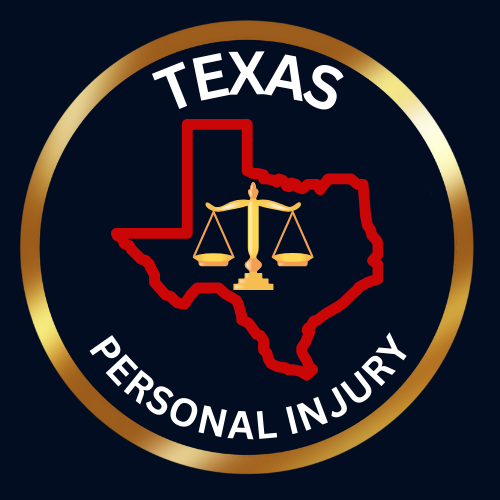Fort Worth, Texas, is a city that embodies the rich heritage of the American West while thriving as a modern metropolitan center. Known for its cowboy culture, vibrant arts scene, and robust economy, the geography of Fort Worth plays a significant role in its distinct character and growth.
Fort Worth is located in the state of Texas, the second-largest state in the United States in terms of both area and population. Texas borders Louisiana to the east, Arkansas to the northeast, Oklahoma to the north, New Mexico to the west, and the Mexican states of Chihuahua, Coahuila, Nuevo León, and Tamaulipas to the southwest. Fort Worth is situated in the north-central part of Texas. Before European settlement, the area now known as Fort Worth was inhabited by various Indigenous peoples, including the Caddo, Wichita, and Comanche tribes. These groups thrived in the region, utilizing its natural resources and fertile lands.
Fort Worth is part of the larger North Texas region and is a key city in the Dallas-Fort Worth Metroplex. This region is known for its diverse landscapes, from prairies and grasslands to urban centers and suburban communities.
Fort Worth lies on the rolling prairies of North Texas and is intersected by the Trinity River, which plays a crucial role in the city’s water supply and recreational activities. The city’s landscape features gently rolling hills, open plains, and several man-made lakes, contributing to its scenic beauty and outdoor recreational opportunities.
Fort Worth is primarily located within Tarrant County, which is the third most populous county in Texas. The city also extends into Denton, Parker, and Wise counties, contributing to the broader metropolitan area’s growth and development.
The Dallas-Fort Worth Metroplex, often referred to as the DFW Metroplex, is one of the largest and most dynamic metropolitan areas in the United States. Fort Worth, together with Dallas, serves as the principal city of this expansive region, which is a major economic and cultural hub.
Fort Worth is divided into eight City Council districts, each represented by an elected council member. These districts help ensure local representation and governance across the city’s diverse communities.
Fort Worth encompasses a wide range of zip codes, each representing different neighborhoods and districts. Some key zip codes include:
- Downtown Fort Worth: 76102
- Westover Hills: 76107
- Near Southside: 76104
- TCU/Westcliff: 76109
- Arlington Heights: 76114
- North Fort Worth: 76131
- Far Southwest: 76123
Fort Worth is home to a variety of distinctive neighborhoods and districts, each offering unique characteristics and attractions. Some notable neighborhoods include:
- Downtown Fort Worth: The city’s central business district is known for its skyscrapers, cultural institutions, and entertainment venues.
- Cultural District: Home to renowned museums, theaters, and the Fort Worth Botanic Garden.
- Near Southside: A vibrant, eclectic area with historic architecture, trendy restaurants, and a lively arts scene.
- West 7th: A bustling urban village with shopping, dining, and nightlife options.
- TCU/Westcliff: A residential area surrounding Texas Christian University, known for its family-friendly atmosphere and collegiate vibe.
- Arlington Heights: A historic neighborhood with charming homes, parks, and close proximity to the Cultural District.
Fort Worth boasts several parks and protected areas that provide green spaces for recreation and conservation. Notable parks and protected areas include:
- Fort Worth Botanic Garden: The oldest major botanic garden in Texas, featuring diverse plant collections and themed gardens.
- Trinity Park: A large urban park along the Trinity River, offering trails, playgrounds, and picnic areas.
- Fort Worth Nature Center & Refuge: A vast natural area with hiking trails, wildlife viewing, and educational programs.
- Gateway Park: A large park with sports fields, trails, and access to the Trinity River.
- Cedar Hill State Park: Located nearby, offering camping, fishing, and hiking in a scenic natural setting.
Within the Greater Fort Worth metropolitan area, there are numerous cities and towns that contribute to the region’s diversity and growth. Some of the nearby cities include:
- Arlington: Known for its major sports venues, including AT&T Stadium and Globe Life Park.
- Keller: A suburban community with excellent schools, parks, and a family-friendly environment.
- Grapevine: A historic town known for its wineries, festivals, and the Grapevine Vintage Railroad.
- Southlake: An affluent suburb with upscale shopping, dining, and top-rated schools.
- Weatherford: A charming town with a rich history, known for its peach orchards and historic downtown.
Fort Worth benefits from several economic initiatives and districts designed to promote business and innovation. Notable areas include:
- AllianceTexas: A 26,000-acre master-planned development that serves as a major logistics hub and economic driver for the region.
- Fort Worth Stockyards: A historic district that has been revitalized to boost tourism, commerce, and cultural heritage.
- Near Southside: An area focused on fostering a creative and entrepreneurial environment, attracting startups and small businesses.
Fort Worth, Texas, is a city with a rich and diverse geography shaped by its historical roots, natural landscapes, and vibrant communities. From its scenic parks and historic neighborhoods to its dynamic economic zones and metropolitan areas, Fort Worth offers a unique and multifaceted experience for residents and visitors alike. Whether exploring its cowboy heritage, enjoying its cultural offerings, or engaging with its thriving economy, Fort Worth stands out as a remarkable city in North Texas.
Ft. Worth Personal Injury Services
- Ft. Worth car accident lawyer
- Ft. Worth truck accident lawyer
- Ft. Worth motorcycle accident lawyer
- Ft. Worth boating accident lawyer
- Ft. Worth medical malpractice lawyer
- Ft. Worth mesothelioma lawyer
- Ft. Worth birth injury lawyer
- Ft. Worth workplace accident lawyer
- Ft. Worth traumatic brain injury lawyer
- Ft. Worth swimming pool accident lawyer
